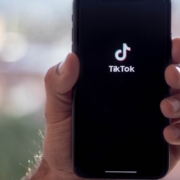
Depression and ADHD: Partners in Crime?
Trouble focusing, eating habit changes, and trouble sleeping can all be signs of both ADHD and major depression. However, the two are not the same. While sometimes they can be confused with one another, they can also sometimes both co-occur. When ADHD and major depression co-exist, we call them comorbid or coexisting conditions. How are the two disorders linked and how can we tell them apart?
Attention deficit hyperactivity disorder (ADHD) is a neurodevelopmental disorder that affects the brain’s executive functions, which helps us plan, focus, and execute tasks. It is most often diagnosed in male children, but it can also affect young girls and adults as well. You can think of ADHD as a deficit in the “management headquarters” of the brain, which depends on the regulation of the neurotransmitter called dopamine.
Major depressive disorder, on the other hand, is persistent sadness, helplessness, and low self-esteem that lasts at least two weeks and affects daily functioning and possibly sleep. Unlike ADHD, major depression is a mood disorder and not a deficit in executive function.
While ADHD and major depression are different diagnoses, they both feature symptoms that can overlap. Up to 30% of patients with ADHD also have a serious mood disorder such as major depression. Moreover, ADHD symptoms can help promote major depressive disorder. For instance, if a young student with ADHD is feeling hopeless and insecure about school and their future, then they may have an increased likelihood of developing major depression. When this occurs, it is called “secondary depression.” What makes matters more difficult is that those with ADHD have difficulty with emotional regulation due to cognitive function impairment. Therefore, negative thoughts that help contribute to depression may be harder to “shake off” with those with ADHD.
It is important to get proper evaluations in order to answer the question “ADHD, depression, or both?” While symptoms overlap in both diagnoses, the root problem is different. Therefore, the treatment and management may be different as well.
The good news for those with both ADHD and major depression is that the medications for both can usually be taken together. Moreover, cognitive behavior therapy might be a good option that can help with both diagnoses. However, it is important to talk to your physician about the best treatment plan. Moreover, when both symptoms of depression and ADHD are present, it is important to prioritize based on the severity of symptoms. For instance, suicidal ideation can be a feature of major depression and should be treated right away.
If you are or your loved one is experiencing symptoms of ADHD and/or depression, contact Pathways for a professional evaluation today to help make the best shared decision with your doctor.




 ADHD – Back to School Tips
ADHD – Back to School Tips 










 Overview of Adult ADHD
Overview of Adult ADHD